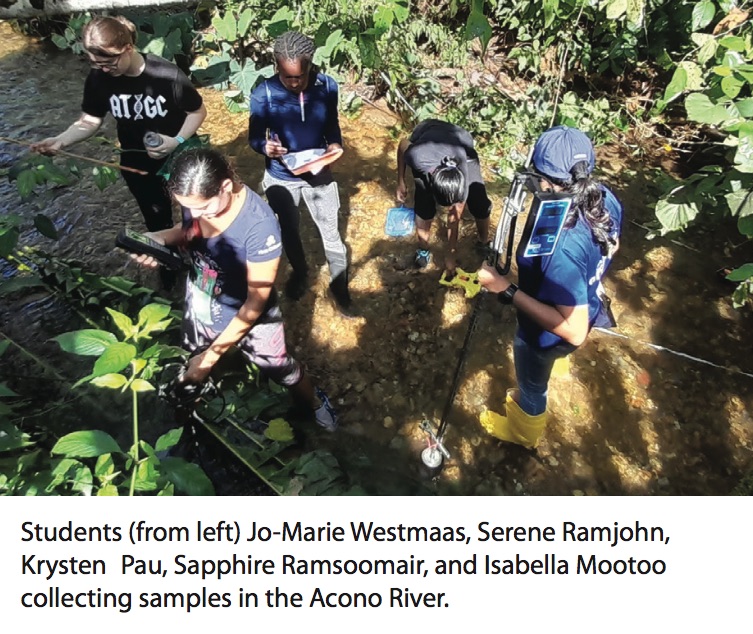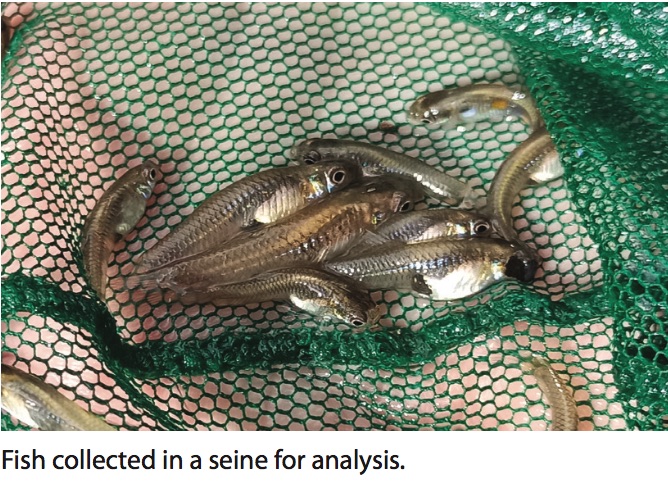In November 2022, environmental biology students from the Department of Life Sciences took part in a field trip to the Acono River to assess the level of pollution. The river, located in the village of Acono in the Maracas, St Joseph Valley, has been a site of conflict between community members, First People’s groups, eco-defenders on one side, and quarrying companies on the other. Defenders of the river say that decades of quarrying has already damaged the area and polluted the river.
The students, all from the BIOL 3469 (Research and Practical skills in Environmental Biology) class, went to the area to “collect information on the river system to make an assessment of pollution”, said lecturer Dr Linton Arneaud.

“They wanted to find out the extent of pollution using scientific methods,” he elaborated.
The five students designed a survey, used habitat and physiochemical descriptions, and analysed benthic macroinvertebrates (aquatic animals without backbones that are large enough to see without a microscope) and fish.
“The lower stream of the river is more polluted than the upper stream as a result of human activities,” said Dr Arneaud of their findings.
Internationally, much is being done to fight climate change. Unfortunately, much more is still needed if the human race intends to mitigate the effects of global warming, sea-level rise, habitat loss, and species extinction. Recognising this, UWI St Augustine is equipping students with the skills and technical abilities to fill specific jobs in the fields of biology, biotechnology, chemistry, engineering, marine ecology, tropical forestry, and other environmental-related disciplines.

The BIOL 3469 course requires students to refine research-evaluating skills, master basic biological material/sampling techniques, and communicate more effectively in ecology and environmental biology. Dr Arneaud stressed the importance of these skills, as well as “citizen science and community-based approaches” to dealing with climate change.
He also praised the students themselves, all young women, for their strong interest and drive in contributing to the science necessary to tackle this pressing issue.
“They indicated that the fight against climate change in the Caribbean is dependent on the ability of our native species and rich ecosystems to adapt to increasing rainfalls, temperatures, and sea-level rise,” he said. “These young scientists believe that Trinidad and Tobago needs to stop talking about climate change and embrace opportunities to save the region from economic and ecological calamity, and start fighting back.